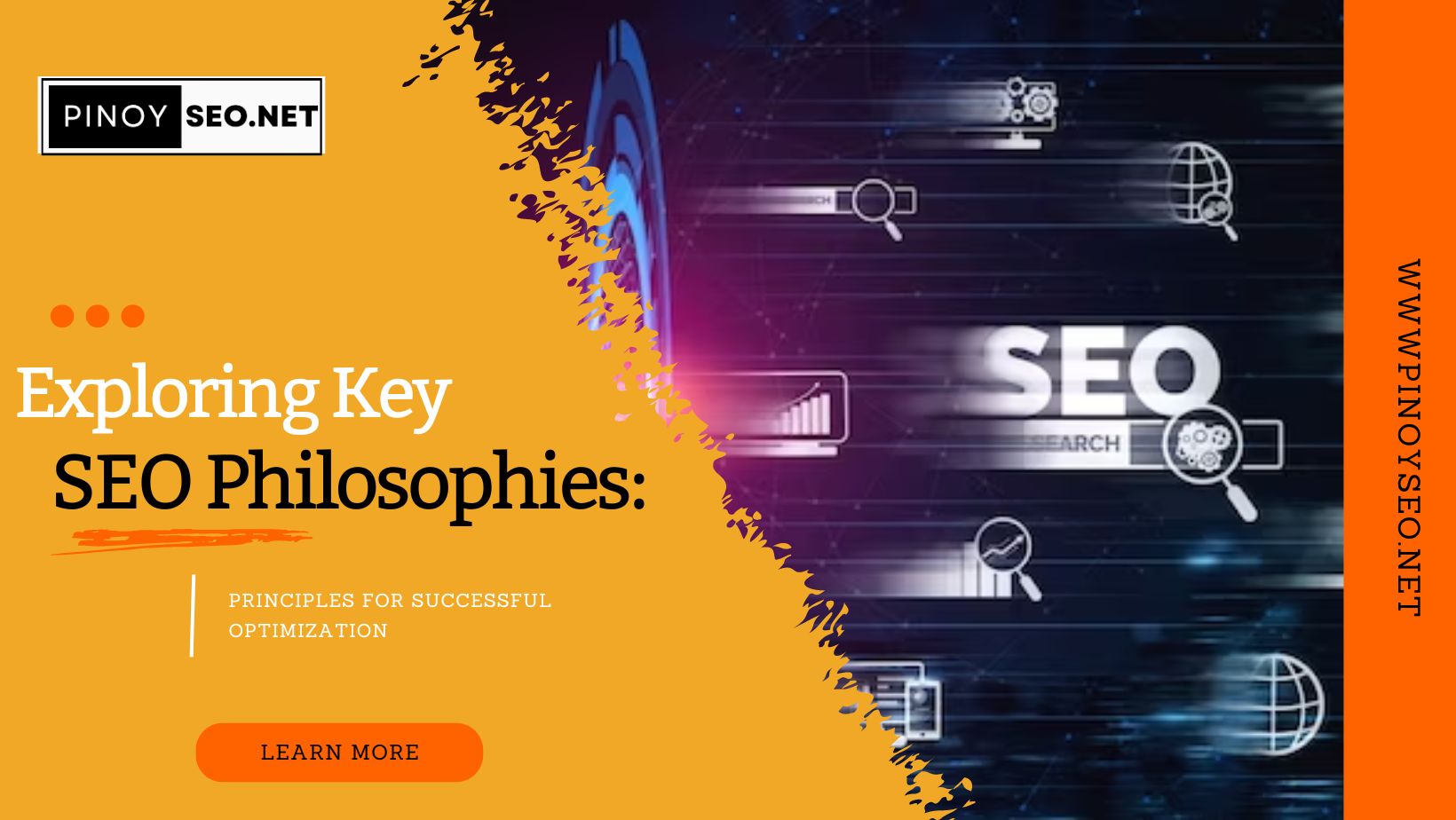In the dynamic realm of search engine optimization (SEO), understanding and embracing fundamental philosophies is crucial for achieving sustainable success. Let’s delve into some key SEO philosophies that guide practitioners in optimizing websites for search engines.
1. User-Centricity: Putting Users First
In the ever-evolving landscape of SEO, prioritizing the needs and preferences of users is paramount. Crafting content that resonates with users, meets their intent, and provides a seamless browsing experience is foundational to effective SEO. By understanding user behavior and preferences, SEO practitioners can create valuable, relevant, and engaging content that drives organic traffic and enhances user satisfaction.
2. Quality Over Quantity: Emphasizing Excellence
In the world of SEO, quality triumphs over quantity. Focusing on creating high-quality content, building authoritative backlinks, and optimizing website elements leads to better results in search engine rankings. By prioritizing quality over quantity, SEO practitioners can ensure that their efforts yield meaningful outcomes and establish a strong foundation for long-term success.
3. Continuous Learning and Adaptation: Staying Ahead of the Curve
SEO is a dynamic field that undergoes constant evolution. Staying informed about industry trends, algorithm updates, and best practices is essential for staying ahead of the curve. SEO professionals must embrace a culture of continuous learning and adaptation, remaining agile and responsive to changes in search engine algorithms and user behavior. By staying abreast of the latest developments, practitioners can refine their strategies and maintain a competitive edge in the ever-changing landscape of SEO.
4. Ethical and White-Hat Practices: Building Trust and Credibility
Ethical conduct is the cornerstone of effective SEO. Adopting white-hat practices and adhering to ethical guidelines ensures the integrity and credibility of SEO efforts. Steering clear of black-hat techniques such as keyword stuffing, cloaking, and link manipulation safeguards against penalties and preserves the trust of both users and search engines. By prioritizing ethical practices, SEO practitioners uphold the integrity of the industry and contribute to a sustainable online ecosystem.
5. Data-Driven Decision Making: Leveraging Insights for Success
Data serves as a guiding light in the realm of SEO. Leveraging analytics and insights enables practitioners to make informed decisions and optimize campaigns effectively. By monitoring key metrics, analyzing trends, and conducting regular audits, SEO professionals gain valuable insights into the performance of their strategies and identify areas for improvement. Data-driven decision making empowers practitioners to refine their approaches, enhance targeting, and drive meaningful results in the competitive landscape of SEO.
6. Holistic Approach: Integrating SEO with Marketing Strategies
SEO is an integral component of broader marketing initiatives. Taking a holistic approach to optimization involves aligning SEO efforts with overarching marketing objectives and strategies. By integrating SEO with content marketing, social media, and user experience initiatives, practitioners can amplify the impact of their efforts and maximize results across channels. A holistic approach enables synergy between different facets of digital marketing, fostering seamless integration and driving comprehensive growth.
7. Long-Term Perspective: Navigating the SEO Marathon
SEO is a journey, not a destination. Embracing a long-term perspective is essential for navigating the complexities of SEO and achieving sustainable success. Recognizing that meaningful results take time, patience, and perseverance helps practitioners maintain realistic expectations and focus on enduring growth. By adopting a long-term mindset, SEO professionals can weather the challenges and uncertainties of the journey, remaining steadfast in their pursuit of excellence.
In conclusion, embracing these key SEO philosophies empowers practitioners to navigate the intricacies of search engine optimization and drive meaningful results in the digital landscape. By prioritizing user-centricity, quality, continuous learning, ethical practices, data-driven decision making, holistic approaches, and long-term perspectives, SEO professionals can forge pathways to success and unlock the full potential of their optimization efforts.


